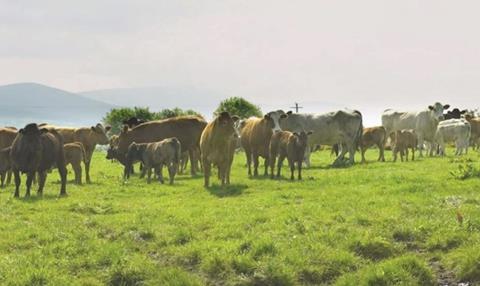The?UK government has launched a UK-wide call for evidence asking the agricultural and food industries, scientists and the wider public for information on the use of new types of animal feed products that can reduce methane emissions from livestock.

The consultation has been launched in agreement with?the Devolved Administrations?of?Northern Ireland, Scotland and Wales. The governments are seeking to find out how producers and agri-businesses can increase adoption of this technology to support more sustainable protein production.
It aims to consider the current role of feed additives within our farming systems, and the potential barriers that could prevent the introduction of methane suppressing feed products in both the near and long-term future.
According to a statement by the government, ruminant livestock – cows and sheep - are the leading cause of farm greenhouse gas (GHG) emissions. However, feed products with methane inhibiting properties have shown potential in reducing GHG emissions, especially from housed cattle. These products may include ingredients like methane production inhibitors, seaweeds, essential oils, organic acids, probiotics and antimicrobials.
In 2019, agriculture allegedly accounted for 10% of total UK GHG emissions, with methane accounting for approximately 54% of total agricultural emissions. The UK government has set a target to achieve net-zero GHG emissions across the whole UK economy by 2050. To meet this target, the government said, all sectors (including the UK meat industry) must reduce their GHG emissions.
Producing food sustainably
Commenting on the survey’s launch, Farming Minister Victoria Prentis said: “We’ve set out ambitious targets to achieve net-zero greenhouse gas emissions by 2050 and it’s right to consider how we can help farmers produce food sustainably and reduce emissions from agriculture further.
“Well managed livestock can provide various environmental benefits and meat and dairy can both be an important part of a balanced diet. Through this call for evidence we’ll better understand the promising role emerging feed additive technologies for cattle could play and how government can help drive its development.”
This story was originally published on a previous version of the Meat Management website and so there may be some missing images and formatting issues.












